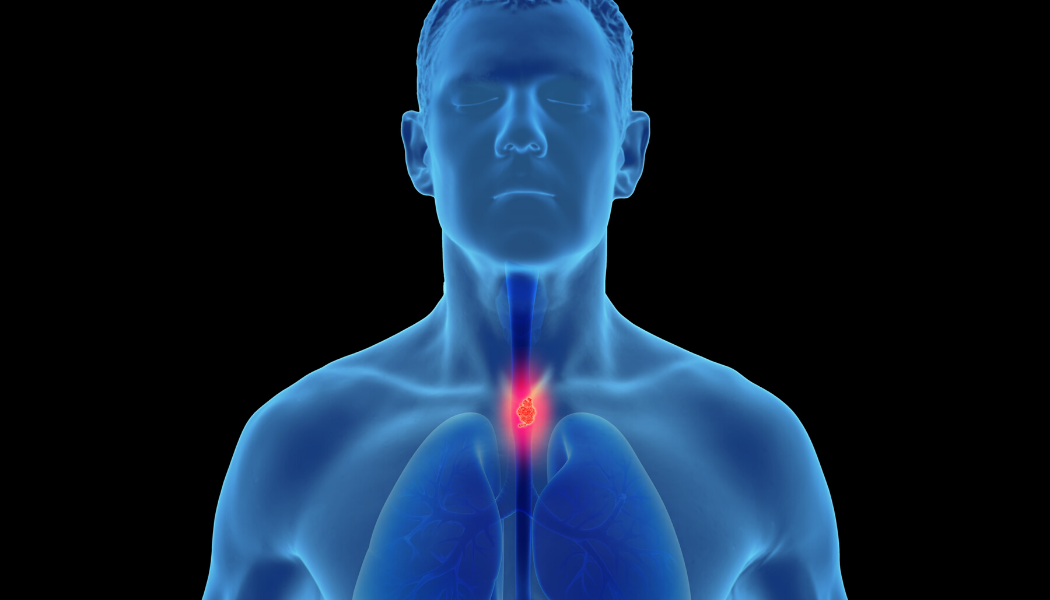Esophageal Cancer Awareness Month: Take Steps to Reduce Your Risk
Learn about the symptoms and risk factors associated with this serious illness, as well as measures that you can take to reduce your risk and lead a healthier life.
Esophageal cancer is a rare, but often devastating illness that affects an individual’s esophagus — the hollow tube that connects the throat to the stomach. Although an individual’s risk of developing the disease during his or her lifetime is only 0.5 percent, the five-year survival rate for those patients diagnosed with the condition averages just 19.9 percent.
To help commemorate Esophageal Cancer Awareness Month this April, the National Foundation for Cancer Research (NFCR) encourages readers to learn more about this serious illness, including the signs and symptoms of which you should be aware, as well as steps that you can take to live a healthier life and help reduce your risk of developing esophageal cancer and other health conditions.
Getting the Facts About Esophageal Cancer
It’s estimated that 18,440 people will be diagnosed with esophageal cancer in 2020. According to the National Cancer Institute, the two most common types of esophageal cancer are squamous cell carcinoma, which typically affects the upper and middle part of the esophagus, and adenocarcinoma, which usually occurs in the lower part of the esophagus near the stomach.
Esophageal cancer often does not cause symptoms in its early stages. However, as it progresses individuals can experience:
- Difficult or painful swallowing
- Weight loss
- Hoarseness
- Cough that does not go away
- Indigestion or Heartburn
- Vomiting
Because symptoms usually do not appear until the disease is advanced, esophageal cancer is also one of the most difficult cancers to treat. Family Feud host Richard Dawson, famed lawyer Robert Kardashian, and renowned actor Humphrey Bogart all succumbed to the disease, with Kardashian passing away just eight weeks after his diagnosis.
Fortunately, researchers continue to investigate new methods to treat esophageal cancer that extend beyond traditional options, such as surgery, radiation, and chemotherapy. Scientists from the University of Cambridge and Case Western Reserve University have even published studies identifying potential new, personalized treatments that target the disease.
Understanding and Mitigating Your Esophageal Cancer Risk
A risk factor is anything that can increase someone’s potential of developing a specific illness. While some risk factors are genetic and cannot be prevented, others can be avoided if a person adopts healthy behaviors.
According to the National Cancer Institute, risk factors for developing esophageal cancer include:
- Smoking
- Drinking alcohol
- Having acid reflux or gastroesophageal reflux disease (GERD)
Men are also approximately three times more likely to develop esophageal cancer than women.
Individuals who want to decrease their risk for developing esophageal cancer are encouraged to avoid using tobacco products and consuming alcohol. For tools and tips to help you stop smoking, visit smokefree.gov. If you need guidance or advice about how to reduce your alcohol consumption, check out alcohol.org, an American Addictions Center resource.
Individuals who experience frequent or severe heartburn should also speak with their health care provider about ways to control their GERD or acid reflux to reduce their risk of developing esophageal cancer.
For more information about esophageal cancer, visit NFCR’s Stomach and Esophageal Cancers webpage. To learn about other healthy behaviors that can help reduce your risk for developing not only esophageal cancer, but also a range of other cancers, check out NFCR’s blog post about eight proactive cancer-preventing pointers.












